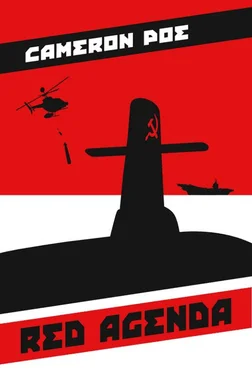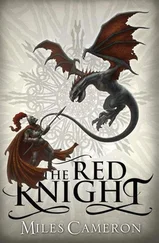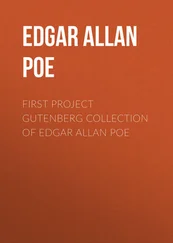Sharon Dailey struggled to get her ’85 Ford Fiesta in her garage. As usual, the cul-de-sac that held her two-bedroom town house was crammed with cars. Her neighbors were a group of rowdy college students who often had their own happy hour every Friday. At least a hundred people attended, blocking most of her driveway. The garage opened, and she gunned the Fiesta inside, closing the world out.
Her roommate’s car was already parked, taking up most of the space. She squeezed out and threw her body against the back door. Jesus Christ, I need a vacation . She tossed her bag on the floor and sank into the couch.
“Beth?” she called. “Beth, are you here?”
When no response came, her curiosity pulled her upstairs to have a look.
In the bathroom, she heard the shower. After peeking around the corner, she saw her roommate, Beth Rudnick.
Beth was naked and testing the water to see if it was an acceptable temperature. She stood five feet tall with the girth of a barrel and acne scares marring her back. She was not a pretty woman by any stretch of the imagination.
“Gotcha!” Sharon yelled, bursting through the door.
“Fuck!” Beth screamed. “You scared the shit out of me.” The excitement made her nipples erect. “You’re home early. Bad day?”
“I had to get out of there. Danny’s talking to that Levi Carp guy.” Sharon picked at herself in the mirror. “I always get the feeling that he’s being set up when he deals with that man.” She began to take her clothes off.
“What do they have to say to each other?”
“Who knows,” she grunted. “Something to do with the Arabs.”
“Leave it at the office. Maybe I can help you get your mind somewhere else. Shower?” Beth grinned.
“I’d like that.” Sharon kissed and began fondling Beth’s small breasts.
Beth became moist and stuck her tongue deep into Sharon’s throat.
“Tonight will be special.” She grabbed Sharon’s hand and stroked her sweet spot, then led her under the water.
CHAPTER TWO

The Ice Chest
“Another one is down, sir,” observed air force major Joshua Brand. He referred to the images on his screen with his index finger. The Russian government was mothballing more of its submarines in a peculiar manner, and the United States was watching the event in real time from the other side of the world. Major Brand was the eye in the sky, literally.
Josh had witnessed this act before. It had been occurring for the past several months as economic sanctions burrowed into the Russian economy and sapped the ability of the military to maintain its weapons. He wanted to move on to something a bit more interesting. His current assignment was being supervised by a rear admiral, Kenneth Sukudo. The admiral was professional and agreeable, but as a matter of principle, Josh didn’t much care for the navy and didn’t warm to working with it, or for it, regardless of the circumstance.
The last time the US Air Force allowed Josh Brand to fly was in Gulf War I. At that time, he piloted an out-of-date A-10 Warthog on short-range bombing missions over Iraq and loved every minute of it. That was when a fragment of Iraqi AAA struck his jet and altered his life.
The damage to the aircraft seemed minimal until he pulled the control back to gain altitude. His warthog scarcely sloshed up. The throttle was stuck open, but the controls merely allowed him to lope along at five thousand feet and no higher. His squadron commander urged him to bail, but Josh was convinced that he could get his plane back to the airstrip in Saudi Arabia. Along with a stuck throttle, small pieces of flack had punctured his hydraulic lines. In the beginning, the deterioration of the hydraulic system was unnoticeable. The real trouble emerged when he tried to land.
The glide pattern was perfect; he cut the engines and began settling the craft in when a vicious crosswind brushed his side. Josh moved to correct, but the controls had run out of fluid. The warthog flipped and tumbled, throwing him across mounds of sand surrounded by a shallow water hole. Because he landed in the mud, not every bone in his body was broken. The most severe injury came to his left eye. The protective shield on his helmet splintered, and a shard lodged in his left retina, ending his career flying.
The air force offered him a discharge, but Josh knew he wouldn’t make a good civilian. He decided to stay, though his future assignments offered little satisfaction. He bounced around to different stations until he landed in Houston. There he stumbled upon the Experimental Orbiting Data Imaging System, or ODIS. ODIS gave Josh new purpose.
He found satellites intriguing. The technology he didn’t readily understand, but he was rather proficient in mathematics and excelled as a specialist who could calculate the orbit, range, and velocity in his head most of the time. Everyone else needed their iPads.
ODIS itself was about all that was left of the Star Wars technology from the Cold War. It had been the prototype for the missile defense system back in the early eighties. It was ancient by modern technology standards, though ODIS did have numerous software and hardware upgrades over the decades. Fifty satellites, give or take ten at any one time, all orbiting the earth on the same flight pattern, all solar powered, all linked with one another and with Josh in Houston.
It was one colossal multimillion-dollar flying rope in space. Where the lead satellite went, the others followed. The beauty was that any of the satellites could be the leader. Whichever one Josh accessed and rerouted, that one would send signals to the following one, instructing it to make a course correction, and that one to the next and so forth, until the complete chain had the new flight pattern in a matter of seconds.
Years before Star Wars was scrapped, the air force smelled its death and salvaged the satellites. By having the space shuttle mount digital lenses, thermal imaging sensors, and radar cameras on the orbiting vehicles, they were able to convert them to intelligence gathering. It was smart and easy since all Josh had to do was fly the chain past the orbiting shuttle. The shuttle’s arm would swing out and grab one; the crew would modify it in the shuttle’s bay and then send it on its way. They modified ten a day, and within a week, Josh was in control of the most sophisticated camera system in the world. It was his personal multibillion-dollar flying peepshow to the world.
Exactly how much could be seen with ODIS was classified. The thermal imaging signal could detect anything that gave off heat. Even a small cat would register clearly on a cool night in New York City. Weather systems rarely interfered with its operation thanks to the radar that enhanced every picture. It was that good and always being refined to make it better. Those days were about to end, though. When the shuttle fleet went into retirement, so did the ability to upgrade and repair his units.
Over the years when things were slow, Josh set ODIS in a preset pattern over the French Riviera and the nude beaches in Europe. This was under the program of testing and recalibrating the imager. Some outsiders might have thought it abuse of government equipment, but Josh’s position was so classified within the service, who would know? The pictures were always filed under “test shots.”
The service Josh and ODIS provided was used throughout the US government. Many people, civilian and military, would ask him to point the lenses to certain regions of the world that were in turmoil. For the most part, he didn’t mind doing what he was asked and often chuckled to himself when the CIA walked through his doors. Often, they would want to touch base with an operation gone bad. He knew more about what was happening on the earth than the president. That fact made him the happiest man in Houston.
Читать дальше














